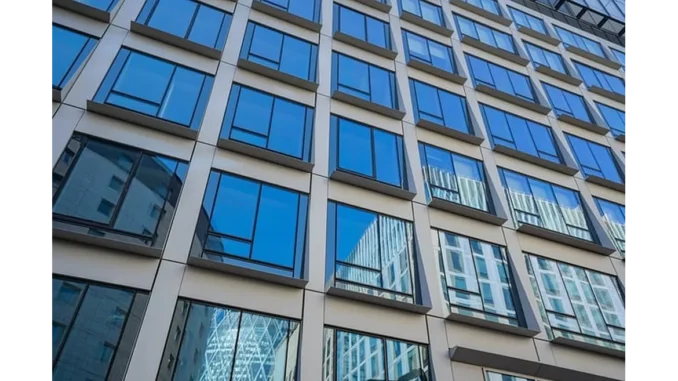
In a recent dialogue with David Thompson, a seasoned project manager at GreenBuild Solutions, the evolving landscape of sustainable construction came into sharp focus. The latest report from the National Building Specification (NBS) and the Royal Institute of British Architects (RIBA) underscores a notable shift in the industry, revealing that 70% of current projects now incorporate green targets, alongside a 13% rise in net-zero initiatives. This transformation is fundamentally altering our approach to construction in the contemporary era.
Discover how Focus360 Energy aids sustainable development with Sustainability Statements.
David’s enthusiasm for the subject was evident as he shared his insights. “Sustainability isn’t just a trend; it’s becoming a core standard in our industry,” he asserted, drawing from his extensive experience. He has observed the gradual but steadfast integration of eco-friendly practices within the sector. “When I began my career, sustainability was more of a buzzword. Now, it’s a necessity,” he remarked.
A particularly striking point David raised was the industry’s reaction to the NBS and RIBA report. “The report serves as a wake-up call for many. It quantifies what many of us have felt: there’s a significant and measurable shift towards sustainability.” The 70% figure, representing projects with green targets, illustrates the industry’s collective effort to mitigate its environmental impact. David elaborated on how this shift is reflected in everyday operations at GreenBuild Solutions. “We embed sustainability from the outset. It’s evident in our material selection, design principles, and waste management practices.” He noted that clients are increasingly prioritising sustainability, compelling companies to innovate and adopt greener methodologies.
Our discussion then turned to the rise in net-zero projects, which the report noted had increased by 13%. “Net-zero isn’t merely about reducing emissions; it’s about achieving a balance where the greenhouse gases produced are offset by those removed from the atmosphere,” David elucidated. He recounted a recent project that achieved net-zero status, involving meticulous planning and collaboration. “We utilised renewable energy sources, implemented energy-efficient designs, and offset any remaining emissions through certified programmes.” His insights highlighted the complexities and rewards of pursuing net-zero projects. “It’s challenging but incredibly fulfilling. Knowing that a building you’ve worked on has minimal environmental impact is immensely gratifying.” The surge in these projects is driven by regulatory pressures, client demand, and a genuine industry-wide commitment to effect positive change.
Beyond individual projects, David emphasised the broader implications of these sustainability targets. “It’s about setting a precedent and inspiring others,” he noted. He believes that as more companies embrace sustainability, a ripple effect will ensue, encouraging the entire industry to adopt greener practices. Technology also plays a pivotal role in achieving these targets. “Technological advancements have been transformative. From energy modelling software to sustainable building materials, technology is pushing the boundaries of what’s possible,” he said, citing examples such as smart building systems that optimise energy use and innovative materials that reduce carbon footprints.
Education and training are fundamental to this transition, as David highlighted. “To meet these green targets, we need a workforce that is knowledgeable and skilled in sustainable practices.” GreenBuild Solutions is proactive in providing ongoing training for their employees to ensure they remain abreast of the latest sustainable technologies and methodologies.
As our conversation concluded, David reflected on the future of sustainable construction. “The NBS and RIBA report is encouraging, but it’s just the beginning. There’s a long road ahead, but the progress we’ve made is promising.” He stressed the importance of continued commitment and innovation within the industry. “Sustainability isn’t a destination; it’s a journey. And it’s one that we all need to be part of.”
Leaving the interview, the depth of David’s commitment to sustainability was striking, as were the broader implications of the NBS and RIBA report. The construction industry is clearly undergoing a significant transformation, driven by a collective effort to foster a more sustainable future. The increase in projects with green targets and the rise in net-zero initiatives are not mere statistics; they represent a fundamental shift in how we build and perceive our built environment.


Be the first to comment